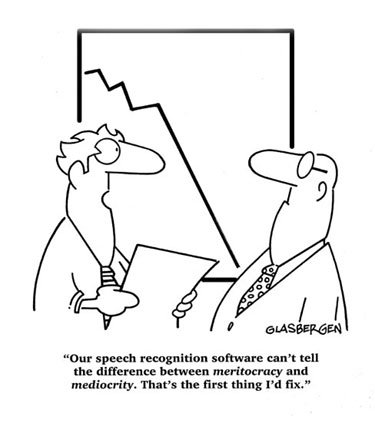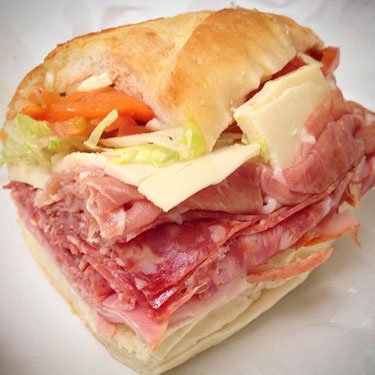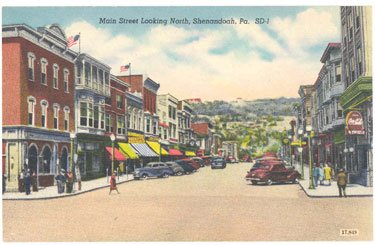Category Archive 'The Elite'
12 Jun 2018


Niall Ferguson points out that the supposedly oh-so-smart people just don’t get it. Trump is winning.
To most highly educated people I know, President Trump is a Terrible, Horrible, No Good, Very Bad president.
For two years, the people with at least two university degrees (PALTUDs) have been gnashing their teeth about Trump’s every utterance and move. To the foreign policy experts, he is a bull in a china shop, trampling the “rules-based international order†underfoot. To the economics establishment, he is a human wrecking ball, smashing more than a half-century of consensus that free trade really works better than protectionism.
A striking feature of all this dire commentary is how wrong it has been so far. …
Despite all the trade war talk, the US economy is at full employment, the dollar is rallying, the stock market is up 30 percent since Trump’s election, and the only countries in any trouble are the usual suspects with their usual problems (e.g., Turkey).
It is not that Trump is an underrated genius, nor for that matter an idiot savant. It is just that his intuitive, instinctive, impulsive way of operating, familiar to those who have done business with him, is exposing some basic flaws in the conceptual framework of the PALTUDs. …
Think of the world as a three-empire system. It is dominated by the United States, China, and Europe, in that order. Each empire is evolving in a different direction. The American empire, having experienced overextension in Afghanistan and Iraq, has not retreated into isolation. Its latest step down the road to empire is domestic. …
All the accompanying symptoms of the transition from republic to empire are already visible. The plebs despise the elites. An old and noble senatorial order personified by John McCain is dying. A cultural civil war rages on social media, the modern-day forum, with all civility cast aside and character assassination a daily occurrence. The president-emperor dominates public discourse by issuing 280-character edicts, picking fights with football players, and arbitrarily pardoning convicted criminals.
Meanwhile, the Chinese empire becomes ever more centralized, ever more invasive of its citizens’ privacy, and ever more overt in its overseas expansion. The Western world regards Xi Jinping as an almighty potentate. Few observers appreciate the acute sense of weakness that has motivated his tightening grip on party and state and his surveillance of his own people. Few see the risks of imperial ventures such as the Belt and Road Initiative, which is drawing Chinese investment into economically unpromising and strategically dangerous locations.
The weakest of the three empires is the European Union. True, its central institutions in Brussels have the power to impose rules, fines, and taxes on the biggest American and Chinese corporations. But Europe lacks tech giants of its own. Its navies, armies, and air forces have melted away, so that it can scarcely defend its frontiers from penniless migrants, never mind hostile invaders. And the political consensus on which it has been based for the past 60 years —between social democrats and moderate conservatives in every member state — is crumbling under a nationalist-populist assault.
The logic of Trumpism is simply to bully the other empires, exploiting the fact that they are both weaker than the United States, in order to extract concessions and claim victories. The Chinese sincerely fear a trade war and will end up buying a very large amount of American produce in order to avoid one. The Europeans dare not stand up to Trump over his Iran sanctions and secretly agree with him about China, and so are reduced to impotent seething (Chancellor Angela Merkel of Germany) or sycophancy (President Emmanuel Macron of France, until last week’s G-7 summit). If they unite against him, he brings up Russia and divides them again.
To the PALTUDs, who remain so certain of their intellectual superiority to the president, all this is incomprehensible. They will continue to find fault with Trump’s every success, nitpicking their way through the small print, failing to realize that in the imperial transition such details cease to matter.
25 Feb 2018


Ivan Nikolaevich Kramskoi, Portrait of an Unknown Woman, 1883, Tretyakov Gallery.
Jeffrey Folks has got the Social Justice Warriors, the Reformers and Improvers, the Holier-than-thous pegged.
For liberals, the distinction between the “dumb masses” and their enlightened selves renders life meaningful. Disdain for ordinary folks is not just an ancillary trait of liberalism. It is fundamental to the its nature.
At its heart, liberalism is a gnostic religion, and the essence of that religion is the believer’s faith that he possesses the means of changing the world for the better. The belief that the world must be changed requires there to be a mass of individuals whose lives are in need of change. Following this logic, it is the liberal, not those deplorables in need of change, who knows what must be changed. For liberals, there must be a mass of people in need of this knowledge for life to make sense.
Above all, liberalism is a hubristic faith. Its followers share the fatal flaw of pride in their own intellectual capacity. This is why liberalism appeals so strongly to those in the knowledge trades: teachers, journalists, writers, psychologists, and social workers. The sense of “knowing more than others” is its strongest attraction – particularly to the young, who otherwise know so little. Liberalism confers, or seems to confer, almost immediate power and authority to those who embrace it.
The left’s obsession with superior knowledge runs through its entire history. As Woodrow Wilson remarked, the “instrument” of political science “is insight. A nice understanding of subtle, unformulated conditions.” Lyndon B. Johnson thought “a president’s hardest task” is “to know what is right.” And the most hubristic of all is Obama’s “We are the ones we’ve been waiting for.” Yes, we are wonderfully bright, and we’ve been waiting eons for ourselves to appear.
The problem for the liberal is that most people do not want to be transformed.
RTWT
06 Feb 2018


Ruth Mayer knows that she is a superior person for holding progressive political opinions and despising Trump, then one of those deplorable Trump supporters comes along and helps her out!
After the march, Katherine and I hit the road in the late afternoon, feeling good; we had done our part to express our outrage. We were about 90 minutes south of D.C. when I heard a terrible popping sound. I assumed I had blown a tire and headed toward the nearest exit. The popping was followed by screeching — were we now driving on metal? Luckily, there was a gas station right off the exit.
Before I could do anything but park my gray Prius, a man rushed over. “I heard you coming down that road,” he said. Before I could say much he started surveying the situation. He didn’t so much offer to help us as get right to work.
It turned out that I hadn’t blown a tire; a huge piece of plastic under the front bumper had come loose, causing the screeching as it scraped along the road. After determining that he couldn’t cut the plastic off, he ran over to his car to grab some zip ties so that he could secure the piece back in place.
He did all of this so quickly that I didn’t have time to grab the prominent RESIST sticker on the side of my car, which suddenly felt needlessly alienating. As this man lay on the ground under my car with his miracle zip ties, I asked if he thought they would hold for four more hours of driving.
“Just ask any redneck like me what you can do with zip ties — well, zip ties and duct tape. You can solve almost any car problem. You’ll get home safe,” he said, turning to his teenage son standing nearby. “You can say that again,” his son agreed.
The whole interaction lasted 10 minutes, tops. Katherine and I made it home safely.
Our encounter changed the day for me. While I tried to dive back into my liberal podcast, my mind kept being pulled back to the gas station. I couldn’t stop thinking about the man who called himself a “redneck” who came to our rescue. I sized him up as a Trump voter, just as he likely drew inferences from my Prius and RESIST sticker. But for a moment, we were just two people and the exchange was kindness (his) and gratitude (mine).
As I drove home, I felt the full extent to which Trump has actually diminished my own desire to be kind. He is keeping me so outraged that I hold ill will toward others on a daily basis. Trump is not just ruining our nation, he is ruining me. By the end of the drive, I felt heartbroken.
When my husband and I first moved to Charlotte eight years ago, I liked to tell people that our neighborhood represented the best impulses of America. In our little two-block craftsman-home development, we had people of every political persuasion from liberal to moderate Republican to tea party, and we all got along. We held porch parties in the summer and a progressive dinner at Christmas. We put being a cohesive neighborhood above politics.
But this year, I realize, I retreated from my porch. Trump’s cruelty and mendacity demand outrage and the most vigorous resistance a nation can muster. Yet the experience with the man at the side of the road felt humbling. It reminded me that we are all just people trying to get home safe. It felt like a sign, that maybe if we treat one another with the kindness and gratitude that is so absent from our president and his policies, putting our most loving selves forward, this moment can transform into something more bearable? I want to come away from the march with that simple lesson, but it begs this question: How do we hold onto the fire fueling our resistance to the cruelty Trump unleashes, but also embrace the world with love? I wish I knew.
RTWT
Years ago, one day I had driven over to Bethel,CT from my Newtown home to do some shopping. I stopped for lunch at the Burger King, and when I’d finished eating and returned to my sexy and sophisticated TVR 2500 British sports car, it wouldn’t start.
I opened the hood and stood there confounded, and along came an older plumber out of a pickup truck. “You just need to see if you’re getting a spark and getting gas,” he explained. He first took a wire off a spark plug and held it near the engine. A spark jump the gap.
“Ok, there is spark,” he said. Then he opened the distributor, and examined the rotor and the points. “Aha!, dirty.” was his observation. He then produced a book of matches and used the striker to clear the contacts. He reassembled the distributor. I turned the key, and it fired right up.
I went to Yale and studied Renaissance Art, the Philosophy of Hegel, and Solar Mechanics. I was generally in the habit of looking upon myself as a few orders of superiority removed from the local working class rednecks, but there was factual, undeniable truth that the old fellow in the jeans could do a better job of logically thinking through the operations of the internal combustion engine than I could.
I puzzled about how all this could be so, and realized that I was better than him at all the highfalutin’ intellectual stuff probably largely because I was seriously interested in that kind of thing and worked at studying it to the point of acquiring the kind of familiarity and self confidence that produces competence. Just as he would be intimidated by a book of academic philosophy and experience a kind of intellectual paralysis preventing him from engaging it, so, too, in my own case, my lack of personal experience and long-term intense interest in automobile mechanics left me standing stupefied, despite my actually really possessing enough information to do all the things he had done.
It became apparent to me that the grand yawning class differences in brains were a lot more superficial than I had been in the habit of thinking. I drove away shaking my head ruefully at my past hubris.
28 Jan 2018


Patricia McCarthy reflects on the ironies of Class in America in a time when the elites are deluded and corrupt and the Common Man is proving himself superior.
Somewhere over the last few days a wise person wrote that “if only the rich and powerful could grasp the notion that the rest of the citizenry does not envy them,” does not wish to live in their mansions, to drive their cars, or to send their children to the prestigious private schools to which they send their children. If our wealthy elites could get over their superiority complex and accept that most of us do not envy them, they might be better citizens, more respectful of the rest of us, better leaders. Illustrious schools may give those children of the rich and powerful a leg up but they do not guarantee happiness, kindness to others, or generosity of spirit. Their inherited wealth does not guarantee they will be good spouses or parents. It is more likely that the children of the very rich often lack the character of their ancestors who actually worked very hard to make the money on which they live so well today.
Those children of the very wealthy who are sent off to expensive boarding schools, to the Ivy Leagues, do not necessarily lead happy lives. Much is expected of such inheritors of wealth and privilege; they must be as successful as their elders, productive in the name of the family. They must belong to the right clubs, dine at the right restaurants, shop at the right couture shops, hire the right caterers, see the right plays, etc. … Their kids must be accepted to the right pre-school, let alone the right private elementary and high school. Their kids are pawns in an ugly, cutthroat game of parental bragging rights. …
The comical aspect of our current political spectrum is that the not-rich progressive leftists are extremely envious of the very rich. They are angry that they exist. They resent their good fortune. These were the Bernie Sanders supporters; Bernie did a good job of filling them with rage against the undeserving rich, socialist that he is. Obama’s and Hillary’s supporters were the virtue-signaling left, often rich themselves but generally ignorant of history and the actual policies of the right, the ones that aim to engender self-reliance and smaller government, the policies that would truly empower minorities rather than make them dependent. Those folks are all about big government, entitlements, mandates, and control of the masses that they disdain.
Most Americans could not care less about the shallow pursuits of the one percent. They want to live their lives, raise their kids to be good citizens, enjoy their sports, their faiths, their hobbies, and varied pursuits and to be left alone by the government. They do not want the state or federal government to mandate that their kids need to know about homosexuality and transgenderism in kindergarten or that males can use the girls’ bathroom if he/she feels like it. This is not the stuff of the American heartland which is why those Americans are so hated by the elite denizens of the beltway and the left coast. Those oh-so-elegant folks wallow in their misery at having to abide “normals.” But it is the normals who corner the market on common sense, real diversity and actual grace. There is nothing of grace among the anti-Constitution leftists.
These people, our supposed betters who wield power and are able to influence how the rest of us live, very truly believe they are superior beings. Only they have the correct opinions. Only they go the right schools, read the correct publications and websites. One only has to read James Damore’s complaint against Google to see how narcissistically arrogant the tech left has become. Read Melinda Byerley’s tweets that express her contempt for Americans unlike herself. Listen to Hillary’s speech about Trump supporters as deplorables. That is what they believe.
The left these days is vicious and intolerant. Leftists no longer even pretend to condone diverse or opposing opinions. They are demonstrating bad behavior all over the nation with their silly marches. Conservatives were horrified at what Obama did to this country over his eight years but we did not act out like banshees in the streets. Our left has surpassed Saul Alinsky’s tactics in their campaign to destroy those whom they oppose. That would be anyone with a differing thought. Consider the campaigns to prevent conservative speakers from appearing at any university and the offer of counseling if one is allowed to speak.
The American left today is fascist. They intend to dictate to every citizen what they can say, do or think. And they are indoctrinating our young people, our elementary through university students, with their radical intolerance. College students no longer learn about the horrors of communism and fascism, both products of the far left. No, they are being trained to be mind-numbed, doctrinaire leftists. They learn to renounce their country, our Constitution, to abhor themselves if white, to see themselves as a victim and so superior if black, Hispanic, etc. To be a minority in America is to be privileged in one sense. Unless one is Asian! Asians are not victims because they value education and succeed in record numbers. They are discriminated against for being successful.
Victimhood is a status symbol on American campuses. Gov. Andrew Cuomo of NY wants to give all illegals free college tuition! While native-born students are condemned to usurious student loans or no college? Why is the entire country not sick to death of the left’s prioritizing illegal immigrants over our citizens? It is so obviously all about votes. If these immigrants were going to be voting Republican, the border would have been sealed up long ago. Make no mistake, this is all about importing Democrat voters. The less educated, the more dependent on U.S. government, the better. They will vote democrat.
RTWT
14 Jan 2018


James Bartholomew, The Spectator, contends that they have been miseducated.
The elite are supposed to be educated. So why are they so silly?
Ah! There is a clue. That word ‘educated’. What does ‘educated’ mean today? It doesn’t mean they know a lot about the world. It means they have been injected with the views and assumptions of their teachers. They have been taught by people who themselves have little experience of the real world. They have been indoctrinated with certain ideas. Here are some key ones.
They have been taught that capitalism is inherently bad. It is something to be controlled at every turn by an altruistic government or else reduced to a minimum. Meanwhile the pursuit of equality is good. These are truly astonishing things for educated people to believe when the past 100 years have been a brutal lesson instructing us that the opposite is the case. The pursuit of equality brought the world terror and tens of millions of deaths along with terrible economic failure. In the past 30 years, by contrast, since China and India adopted more pro-capitalist policies, capitalism has caused the biggest reduction in poverty the world has ever known. You may know that, but it is not taught in schools. Schools actually teach that Stalin’s five-year plans were a qualified success! The academic world is overwhelmingly left-wing and the textbooks spin to the left. They distort the facts or omit them.
What the elite have been led to believe is that governments make things better. ‘Market failure’ is taught; ‘public-sector failure’ is not. In my own area, they are taught that everything was awful in 19th-century Britain until governments came along to save the day with an ever-bigger welfare state. The importance of friendly societies, voluntary hospitals and so on is omitted. It is rubbish — left-wing propaganda. But misleading education of this and other kinds rubs off even on those who are not studying history or politics. It comes through in the Times, the Guardian or, in America, the Washington Post or New York Times. In Britain, BBC Radio 4 is the continuation of university propaganda by other means.
RTWT
I think he overlooks the point that “the elite” is overwhelmingly comprised of the lumpen pseudo-intelligentsia, the incapable-of-critical-thought mass products of elite education, who, armed with those elite credentials, rise via docility, conformity, and a penchant for shit work to occupy positions they are really not qualified to fill.
Just look at Yale President Peter Salovey!
People of his sort are really nihilists, who believe the truth consists of the consensus of the contemporary establishment. People like Salovey feel obliged to treat the Radical Left as their conscience and bow to its demands, because the Left is passionate and people like Salovey are devoid personally of passion for anything but safety and career advancement. Leftists are noisy idealists and consequently must be propitiated, rewarded, and admired.
Conservatives, on the other hand, are infidels and heretics and must be detested and suppressed.
04 Dec 2017


Puzhong Yao.
Puzhong Yao was born in China, but has studied and worked at some of the most elite institutions in the West, and he still finds the mindset of the Western elite strange.
[L]ike the Evangelical Christians, my life was changed by a book. Specifically, Robert Rubin’s autobiography In an Uncertain World (Random House, 2003). Robert Rubin was Goldman Sachs’s senior partner and subsequently secretary of the Treasury. Only later did I learn that certain people in the United States revere him as something of a god.
I first bought the book because I was puzzled by the title, especially coming from a man who had achieved so much. I had always thought that things happen for reasons. My parents taught me that good people get rewarded while evil gets punished. My teachers at school taught me that if you work hard, you will succeed, and if you never try, you will surely fail. When I picked up the book, I was studying math at Cambridge University and, as I looked back at the standardized tests and intense study that had defined my life until then, I could see no uncertainty.
But since reading Rubin’s book, I have come to see the world differently. Robert Rubin never intended to become the senior partner of Goldman Sachs: a few years into his career, he even handed in his resignation. Just as in Rubin’s career, I find that maybe randomness is not merely the noise but the dominant factor. And those reasons we assign to historical events are often just ex post rationalizations. As rising generations are taught the rationalizations, they conclude that things always happen for a reason. Meanwhile, I keep wondering: is there someone, sitting in a comfortable chair somewhere, flipping a coin from time to time, deciding what happens in the world? …
I don’t claim to be a modern-day Alexis de Tocqueville, nor do I have much in common with this famous observer of American life. He grew up in Paris, a city renowned for its culture and architecture. I grew up in Shijiazhuang, a city renowned for being the headquarters of the company that produced toxic infant formula. He was a child of aristocrats; I am the child of modest workers.
Nevertheless, I hope my candid observations can provide some insights into the elite institutions of the West. Certain beliefs are as ubiquitous among the people I went to school with as smog was in Shijiazhuang. The doctrines that shape the worldviews and cultural assumptions at elite Western institutions like Cambridge, Stanford, and Goldman Sachs have become almost religious. Nevertheless, I hope that the perspective of a candid Chinese atheist can be of some instruction to them. …
It was the summer of 2000. I was 15, and I had just finished my high school entrance exam in China. I had made considerable improvements from where I started in first grade, when I had the second- worst grades in the class and had to sit at a desk perpendicular to the blackboard so that the teacher could keep a close eye on me. I had managed to become an average student in an average school. My parents by then had reached the conclusion that I was not going anywhere promising in China and were ready to send me abroad for high school. Contrary to all expectations, however, I got the best mark in my class and my school. The exam scores were so good that I ranked within the top ten among more than 100,000 students in the whole city. My teacher and I both assumed the score was wrong when we first heard it.
As a consequence, I got into the best class in the best school in my city, and thus began the most painful year of my life. My newfound confidence was quickly crushed when I saw how talented my new classmates were. In the first class, our math teacher announced that she would start from chapter four of the textbook, as she assumed, correctly, that most of us were familiar with the first three chapters and would find it boring to go through them again. Most of the class had been participating in various competitions in middle school and had become familiar with a large part of the high school syllabus already. Furthermore, they had also grown to know each other from those years of competitions together. And here I was, someone who didn’t know anything or anyone, surrounded by people who knew more to begin with, who were much smarter, and who worked just as hard as I did. What chance did I have?
During that year, I tried very hard to catch up: I gave up everything else and even moved somewhere close to the school to save time on the commute, but to no avail. Over time, going to school and competing while knowing I was sure to lose became torture. Yet I had to do it every day. At the end-of-year exam, I scored second from the bottom of the class—the same place where I began in first grade. But this time it was much harder to accept, after the glory I had enjoyed just one year earlier and the huge amount of effort I had put into studying this year. Finally, I threw in the towel, and asked my parents to send me abroad. Anywhere else on this earth would surely be better.
So I came to the UK in 2001, when I was 16 years old. Much to my surprise, I found the UK’s exam-focused educational system very similar to the one in China. What is more, in both countries, going to the “right schools†and getting the “right job†are seen as very important by a large group of eager parents. As a result, scoring well on exams and doing well in school interviews—or even the play session for the nursery or pre-prep school—become the most important things in the world. Even at the university level, the undergraduate degree from the University of Cambridge depends on nothing else but an exam at the end of the last year.
On the other hand, although the UK’s university system is considered superior to China’s, with a population that is only one-twentieth the size of my native country, competition, while tough, is less intimidating. For example, about one in ten applicants gets into Oxbridge in the UK, and Stanford and Harvard accept about one in twenty-five applicants. But in Hebei province in China, where I am from, only one in fifteen hundred applicants gets into Peking or Qinghua University.
Still, I found it hard to believe how much easier everything became. I scored first nationwide in the GCSE (high school) math exam, and my photo was printed in a national newspaper. I was admitted into Trinity College, University of Cambridge, once the home of Sir Isaac Newton, Francis Bacon, and Prince Charles. …
Warren Buffett has said that the moment one was born in the United States or another Western country, that person has essentially won a lottery. If someone is born a U.S. citizen, he or she enjoys a huge advantage in almost every aspect of life, including expected wealth, education, health care, environment, safety, etc., when compared to someone born in developing countries. For someone foreign to “purchase†these privileges, the price tag at the moment is $1 million dollars (the rough value of the EB-5 investment visa). Even at this price level, the demand from certain countries routinely exceeds the annual allocated quota, resulting in long waiting times. In that sense, American citizens were born millionaires!
Yet one wonders how long such luck will last. This brings me back to the title of Rubin’s book, his “uncertain world.†In such a world, the vast majority things are outside our control, determined by God or luck. After we have given our best and once the final card is drawn, we should neither become too excited by what we have achieved nor too depressed by what we failed to achieve. We should simply acknowledge the result and move on. Maybe this is the key to a happy life.
On the other hand, it seems odd that this should be the principal lesson of a Western education. In Communist China, I was taught that hard work would bring success. In the land of the American dream, I learned that success comes through good luck, the right slogans, and monitoring your own—and others’—emotions.
RTWT
25 Oct 2017


Costin Alamariu thinks most Third World dictators have more real “merit” than today’s elite representatives of the alleged meritocracy.
The dim, grey technocrats who have taken hold of America and much of the West for the last few decades are feeling cornered and exposed. Their PR men are coming up with new and weird excuses. David Brooks in The New York Times argued recently that for all its faults, America has a “meritocratic elite.†According to Brooks, this group is opposed mainly because of white working class cultural resentment. He believes that America’s ruling class today is at least superior to the postwar WASPs who ran the country in the 1950s and 1960s.
But America’s Protestant establishment ran the country before World War II, as well. They won that war. They built the Hoover Dam, the Golden Gate Bridge, and Empire State building in less than two years at the height of the Depression. After the war, they took the country to the moon. It’s hard to see how websites like Google—or other “innovations†like collateralized loan obligations—can compare, glorious though these may be in their own way. Our current ruling class, with all its computing power, human resources “synergies,†and vibrant diversity, took seven years to build an on-ramp to that same Golden Gate Bridge. …
The purpose of meritocracy was to prevent occasional and unfortunate discrimination against men like Richard Feynman. Instead, we get Sonya Sotomayor and Neil deGrasse Tyson. In politics, we get sorority creatures Marie Harf and Barack Obama, a man apparently assisted by affirmative action at every stage of his life.
RTWT
Schools like Yale have been blowing smoke for generations about how this year’s freshman class is the brightest, most competitive, most marvelous ever to come down the pike. And Ivy-League-ers of the present uncritically accept all the compliments and think themselves to represent the absolute apex of human evolution.
The current generation of Yale undergraduates fondly imagines that entering classes of my day were overwhelmingly comprised of Cadwalladers, Wickershams, and Tafts who all had millionaire fathers, who all graduated from St. Grottlesex, and who spent their time at Yale sipping Mint Juleps at the Fence Club between polo matches.
In reality, the majority of my entering class was made up of graduates of public high schools. A large percentage of us were on scholarship and were the first representatives of our families to attend college. And, in fact, we had it soft.
In still older times, Yale was really unequal. Student rooms varied in quality depending on your means, guys working their way through college worked full-time jobs, roomed in slums, and lived on beans. The Catholic, Jewish, or merely impecunious Yale student never even got into Mory’s.
But it was precisely those kind of guys who built giant corporations, erected the wonders of the 20th Century, and won America’s wars back in the days when we made a policy of actually winning wars.
When I read of one of those aggrieved snowflake demonstrations at Yale demanding some outrageous and offensive concession to the amour propre of today’s spoiled, ignorant, and immature poseurs, I often wish that I could wave my hand and bring back one of the all-male classes of the first few decades of the last century to demonstrate their opinion of the conduct of the classes of today. How about the Class of 1930, whose football team was unbeaten, untied, and unscored upon? What do you suppose they’d say if they were told they could not wear certain Halloween costumes because certain people might be offended?
19 Jul 2017


Charlie Martin is the latest in line to poke some fun at David Brooks’ identification of Italian cold cuts as a signifier of grand social superiority.
[T]hree bits of media: David Brooks’ famous sandwich story, this story about a village in Nunavut (the First Nations province in Canada) that buys great quantities of stuff from Amazon, and an episode of Andrew Zimmern’s Bizarre Foods in which he drives up the Pacific Coast Highway to sample the local delicacies of coastal mid-state California.
Brooks first. I imagine you all have already been exposed to this column, in which he argues that the lower economic classes are being held down because they don’t learn the “cultural signifiers” that mark the upper educated classes. Here’s the core paragraph:
Recently I took a friend with only a high school degree to lunch. Insensitively, I led her into a gourmet sandwich shop. Suddenly I saw her face freeze up as she was confronted with sandwiches named “Padrino†and “Pomodoro†and ingredients like soppressata, capicollo and a striata baguette. I quickly asked her if she wanted to go somewhere else and she anxiously nodded yes and we ate Mexican.
Presumably, she was more comfortable with tamales and enchiladas and menudo than sandwiches named “tomato” and “godfather.”
In Zimmern’s show, he went to sea with a fisherman and then had dinner with the fisherman’s family (which had been fishing professionally for generations), then went into the tidal zone with a Hmong couple who showed him where you could forage for mussels and whelks and limpets and make a meal of them, then went to an Elks Lodge where bartenders pour heavy and the Elks get together and cook big chunks of top sirloin on a spit. Zimmern was just ever so impressed with these folks living the American Dream, out there working and bringing in fish and raising cattle. And amazingly enough, not one of them had a bone through their nose.
Sponsored
Then we look at the village in Nunavut, where the story was that the whole village loved Amazon Prime, because they could order food and furniture and tools and supplies and get them with second-day delivery. The prices were far better — and the selection even more so — than the stores in the villages. The money quote to my eye was one person who said that Amazon Prime had done more for their quality of life than years of government programs. The bulk of the story, however, was that they were afraid Canada Post was going to not want to continue to deliver to their village because they were using so much shipping, along with people from the government saying that Amazon Prime wasn’t good because some people didn’t have credit cards, or were on assistance and so couldn’t buy things from Amazon.
The point is that for all Brooks’ talk about “social signifiers” and how the different signifiers were preventing the less-educated classes from moving up, when his female friend was confronted with this menu, he didn’t say: “Look, ‘Pomodoro’ and ‘Padrino’ are just names they gave the sandwiches, soppressata and capicollo are kinds of salami, and the other one is a kind of bread.” Instead of “insensitively” explaining things to her and giving her a chance to try something new, he “sensitively” took her to a Mexican place, and so preserved her from needing to learn all those “social signifiers.”
I used to frequent a steel mill bar in my old home town in Pueblo, where there would be a bunch of guys eating capicollo and soppressata sandwiches and drinking michelada (a Bloody Mary with beer instead of vodka). All those guys were wearing jeans with slag burns and had heavy work gloves and hard hats; not one of them had a crease in their pants leg. David may think that’s “gourmet” and exotic — but to people with real jobs, that’s just lunch.
Which is exactly the problem. In all of these stories, the underlying assumption is that they are the civilized people, and they’re out on the reservation where the unenlightened are living.
16 Jul 2017

The Yale Record interviews David Brooks only poorly educated friend, living in a trailer in a fly-over Red State with a Trump campaign sign on his lawn:
I am David Brooks’ friend with only a high school degree. My skills are unpolished but my shirt is lamé. My good deeds are numerous but my teeth are not. Once I found five dollars on the street but I didn’t know how to use it. You win some, you lose some!
David Brooks is my wise friend. I am always grateful for him taking me to lunch as I cannot walk the streets without becoming disoriented by all the tall buildings around me. They look so similar, and yet they are not the same. Who lives in them, and what do they live for? Do they stare out their windows, looking through identical windows to the lives they wish they lived? What is “5th Avenue� Without the help of my friend David Brooks, I would stand in the middle of the street paralyzed by these thoughts all day.
When we go to lunch, David Brooks helps me navigate the confusing cultural signifiers I encounter in my daily life. I feel humiliated and excluded because I do not understand them. When we went to the gourmet sandwich shop, I was confused. I was also embarrassed that everyone was so much taller than me on their stilts they got in college. My friend David Brooks sensed my fear and shame. He taught me about the tall bread cylinder and how it is for eating in pieces. Still, I felt out of place. To me, a “Padrino†is a term of endearment for my dad. To me, olive oil is something I use to lubricate my car. You can imagine why I am thankful for my friend David Brooks!
What is “Pomodoro� What is the “liberal elite� Why, when David Brooks takes me out to lunch, does he make me line up all my noodles end to end? These are only some of the questions I have when I dine with my friend David Brooks. Once I told him I did not want to line up all my noodles end to end. He said it was understandable that I was frightened and he did not hold it against me as I have no college diploma but I still had to line them up. He kept shouting, “Line ‘em up! Line those noodles up!†When I cried, he apologized and gave me an Airhead from the breast pocket where he keeps them. I immediately felt at home.
RTWT
12 Jul 2017


High Culture, according to David Brooks
“Recently I took a friend with only a high school degree to lunch. Insensitively, I led her into a gourmet sandwich shop. Suddenly I saw her face freeze up as she was confronted with sandwiches named ‘Padrino’ and ‘Pomodor’ and ingredients like soppressata, capicollo and a striata baguette. I quickly asked her if she wanted to go somewhere else and she anxiously nodded yes and we ate Mexican.â€
— David Brooks, “How We Are Ruining America,†New York Times, 7/11/17
McSweeney’s has published the Course Catalog for David Brooks’ Elite Sandwich College:
Classic Italian Meats 205
Prerequisite: Basic Deli Meats 101
In this class we will go beyond the American deli meats like ham, turkey, and chicken breast and learn more in-depth about the classic Italian cured meats: Pancetta, Prosciutto, Capicola, and more. Students will learn about origin, curing techniques, and appropriate stacking method. Two lectures and two studio hours each week.
Fancy Condiments and Toppings 305
Prerequisite: Mayonnaise and Mustard Only 101
Students will learn the basics of topping a sandwich beyond just meat and vegetables. Techniques include the seasoned olive oil drizzle and distribution of aioli. If time in semester permits, students will dabble in use of cornichons and castelvetranos. Three lectures and one lab weekly.
Wrapping 101
A perfect sandwich wrap takes skills. This likely wasn’t covered in your basic high school sandwich courses. Wrapping techniques discussed include old style deli-fold, long breads, and double layer. Lab only.
Talking to Your Friends About Italian Delis 426
In this soft-skills class, students will learn how to help friends who have never visited a deli choose items on the menu. Students will learn how to gently correct friends when they pronounce “mozzarella†with the “a†sound at the end, when the right time is to explain that tomatoes were actually not native to Europe so marinara sauce is actually not traditionally Italian, and the right way to introduce that pizza is actually very different in Italy. Three lectures weekly. Includes unannounced quizzes/sandwich runs.
17 May 2017


Trink forwards the comments of Anonymous:
He’s a loose cannon. He doesn’t know what he’s doing. He’s bumbling, fumbling, crude, rude, and the proverbial bull in an historic china shop.
The biggest complaint about the president is that he’s not presidential. How can he tweet? Yeah, Comey needed to be fired. Hell, he begged to be fired, but you don’t do it like that. It’s amateur hour.
Donald Trump’s demeanor has not only been dissected 18 hours a day since January 20th, it has been probed, prodded, and generally autopsied since he stirred up the 17-man field in the GOP primaries. There is nothing revelatory remaining.
If Washington loved “No Drama†Obama, it loathes “Quick to Jump†Trump. The Capital City has long been referred to as Hollywood for Ugly People, but we’ve entered a new era of performance art. It has become style over substance to the Nth degree.
The majority of the press, the commentariat and the professional class of teat suckers are just appalled, I mean appalled that man was ever allowed in the Oval Office. Yeah, he’s rich, but he’s tasteless rich. If Crotch-Scratch Joe from the trailer park down by the tracks won the lottery his place would look like Trump’s New York apartment.
And that’s the real sin, isn’t it? The four richest counties in America now surround the Federal City. The New York Times ran a story Friday about how property prices have soared surrounding the District and how well Aston Martins and McLarens are selling. See, we’re talking taste.
Meanwhile, across the country in Los Angeles county a new private terminal is opening for the super rich at LAX, replete with comfortable furniture, beds, fine wines and chocolate, a masseuse on call and, of course, a more refined TSA experience. But more than that there is an iPad sitting on a counter near the entrance with the feed of a camera on the lobby of the main terminal. A note placed nearby reads, “Here’s a glimpse of what you’re missing over at the main terminal right now.†It’s not enough to avoid the hoi polloi, one must take the time to sneer at them and perhaps be amused by their grubby, miserable lives.
Undoubtedly everyone who pays the annual $7,500 membership fee and the $3,000 fee per flight taken have all the right political positions and are heartbroken over Hillary’s denial to the throne. They just don’t understand how so many in those wretched places like Pennsylvania, Ohio, Michigan and Wisconsin could vote “against their own interests.†Nor do they understand how these horrible deplorables who look so amusing on the iPad feed struggling with their luggage on the way to crass, plastic destinations, could possibly continue to back this horrid little orange man from the crass, plastic world of real estate dealings.
Out in the hinterlands, where technology and government has abandoned them, where their God is mocked and they offer up their sons and daughters to the military and the Marxists of the academy in hopes they will find their piece of the dying American Dream, they look at what’s happening in Washington and they feel as embattled as the President. And the party they thought was on their side reveals itself to be as disconnected from them as the LAX voyeurs.
Something has to change. It’s not going to be Trump. He is what he is.
09 Apr 2017


North Main Street, Shenandoah, Pennsylvania, just a bit before my time. It still looked just like this when I was a boy.
Cornell Economic historian Louis Hyman strokes his chin in the New York Times, points out to the rest of us peons the economic realities that everybody already knows, and then assures Red State Trump supporters who prefer small towns to the metropolis that they can do just fine after all.
We need merely get used to doing without buildings, streets, theaters, bars, and churches, and make ourselves comfortable in electronic neighborhoods on Internet social media, while making a good living marketing our quaint custom handicrafts to the international luxury market on-line.
Isn’t it easy to solve these things from your departmental office at Cornell?
Throughout the Rust Belt and much of rural America, the image of Main Street is one of empty storefronts and abandoned buildings interspersed with fast-food franchises, only a short drive from a Walmart.
Main Street is a place but it is also an idea. It’s small-town retail. It’s locally owned shops selling products to hardworking townspeople. It’s neighbors with dependable blue-collar jobs in auto plants and coal mines. It’s a feeling of community and of having control over your life. It’s everything, in short, that seems threatened by global capitalism and cosmopolitan elites in big cities and fancy suburbs.
Mr. Trump’s campaign slogan was “Make America Great Again,†but it could just as easily have been “Bring Main Street Back.†Since taking office, he has signed an executive order designed to revive the coal industry, promised a $1 trillion infrastructure bill and continued to express support for tariffs and to criticize globalism and international free trade. “The jobs and wealth have been stripped from our country,†he said last month, signing executive orders meant to improve the trade deficit. “We’re bringing manufacturing and jobs back.â€
But nostalgia for Main Street is misplaced — and costly. Small stores are inefficient. Local manufacturers, lacking access to economies of scale, usually are inefficient as well. To live in that kind of world is expensive.
This nostalgia, like the frustration that underlies it, has a long and instructive history. Years before deindustrialization, years before Nafta, Americans were yearning for a Main Street that never quite existed. . . . The fight to save Main Street, then as now, was less about the price of goods gained than the cost of autonomy lost. . . .
To save Main Street, state lawmakers in the 1930s passed “fair trade†legislation that set floors for retail prices, protecting small-town manufacturers and retailers from big business’s economies of scale. These laws permitted manufacturers to dictate prices for their products in a state (which is where that now-meaningless phrase “manufacturer’s suggested retail price†comes from); if a manufacturer had a price agreement with even one retailer in a state, other stores in the state could not discount that product. As a result, chain stores could no longer demand a lower price from manufacturers, despite buying in higher volumes.
These laws allowed Main Street shops to somewhat compete with chain stores, and kept prices (and profits) higher than a truly free market would have allowed. At the same time, workers, empowered by the National Labor Relations Act of 1935, organized the A. & P. and other chain stores, as well as these buttressed Main Street manufacturers, so that they also got a share of the profits. Main Street — its owners and its workers — was kept afloat, but at a cost to consumers, for whom prices remained high.
But this world was unsustainable. It unraveled in the 1960s and 1970s, as fair trade laws were repealed, manufacturers discovered overseas suppliers and unions came undone. On Main Street, prices came down for shoppers, but at the same time, so did wage growth. Main Street was officially dead.
It’s worth noting that the idealized Main Street is not a myth in some parts of America today. It exists, but only as a luxury consumer experience. Main Streets of small, independent boutiques and nonfranchised restaurants can be found in affluent college towns, in gentrified neighborhoods in Brooklyn and San Francisco, in tony suburbs — in any place where people have ample disposable income. Main Street requires shoppers who don’t really care about low prices. The dream of Main Street may be populist, but the reality is elitist. “Keep it local†campaigns are possible only when people are willing and able to pay to do so.
In hard-pressed rural communities and small towns, that isn’t an option. This is why the nostalgia for Main Street is so harmful: It raises false hopes, which when dashed fuel anger and despair. President Trump’s promises notwithstanding, there is no going back to an economic arrangement whose foundations were so shaky. In the long run, American capitalism cannot remain isolated from the global economy. To do so would be not only stultifying for Americans, but also perilous for the rest of the world’s economic growth, with all the attendant political dangers. …
Many rural Americans, sadly, don’t realize how valuable they already are or what opportunities presently exist for them. It’s true that the digital economy, centered in a few high-tech cities, has left Main Street America behind. But it does not need to be this way. Today, for the first time, thanks to the internet, small-town America can pull back money from Wall Street (and big cities more generally). Through global freelancing platforms like Upwork, for example, rural and small-town Americans can find jobs anywhere in world, using abilities and talents they already have. A receptionist can welcome office visitors in San Francisco from her home in New York’s Finger Lakes. Through an e-commerce website like Etsy, an Appalachian woodworker can create custom pieces and sell them anywhere in the world.
Americans, regardless of education or geographical location, have marketable skills in the global economy: They speak English and understand the nuances of communicating with Americans — something that cannot be easily shipped overseas. The United States remains the largest consumer market in the world, and Americans can (and some already do) sell these services abroad.

Feeds
|














